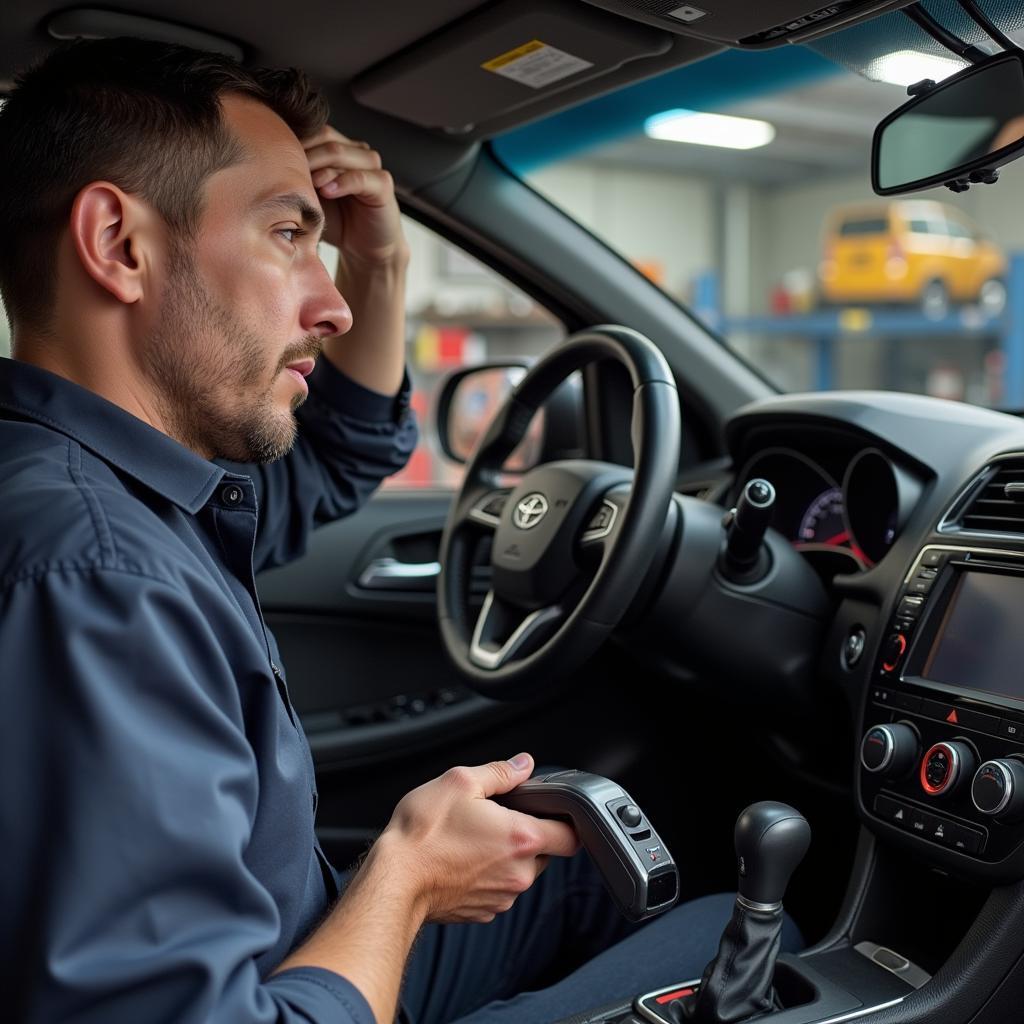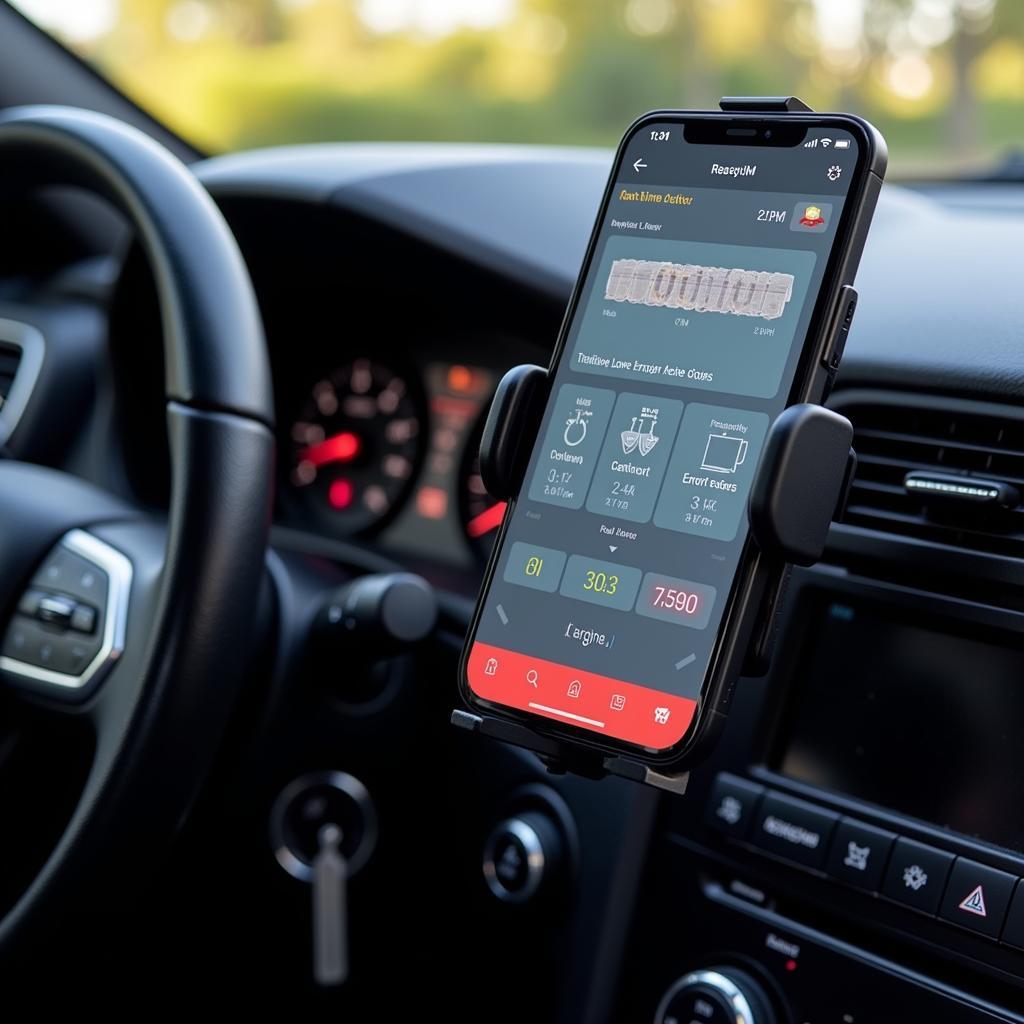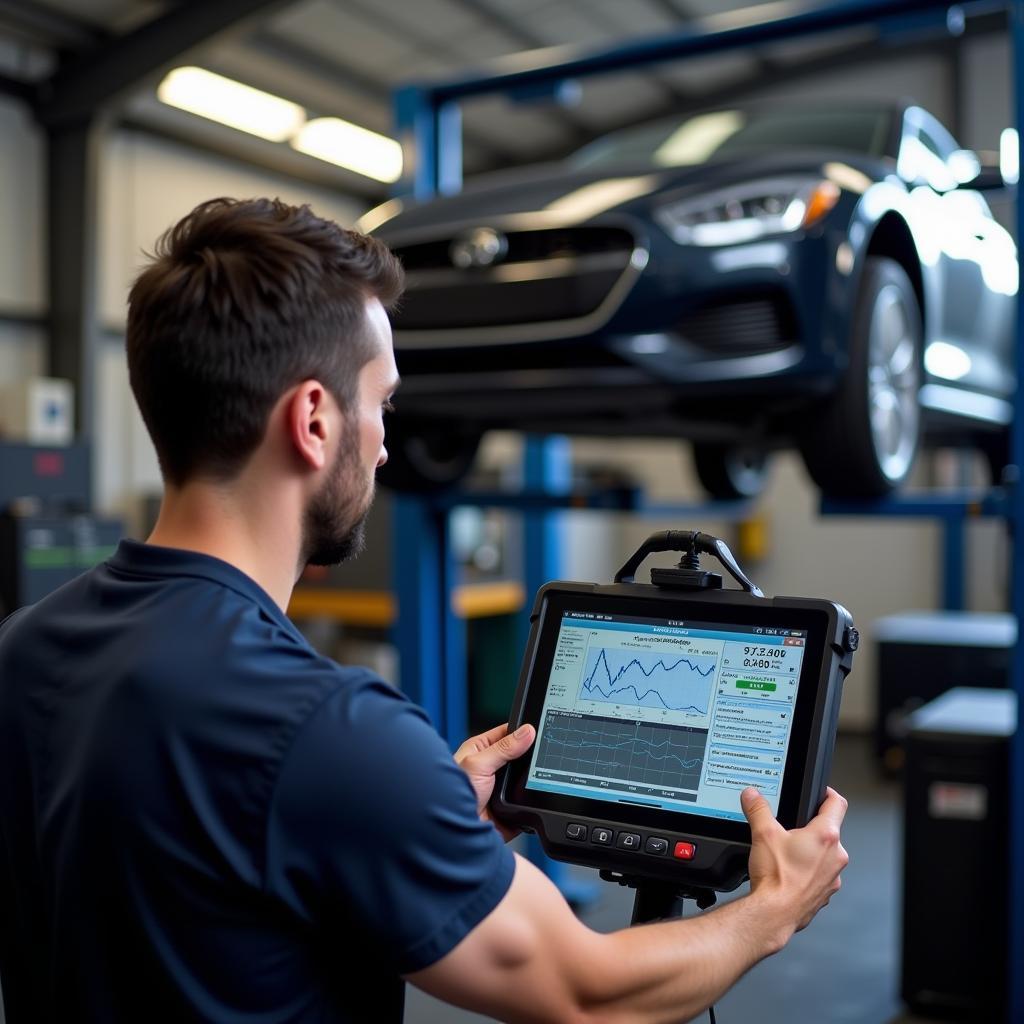You plugged in your car scanner, expecting a readout, but were met with silence. Now you’re left wondering, “Why won’t my scanner read my car?” It’s a frustrating situation, but don’t worry, you’re not alone. This issue is more common than you might think, and the good news is that the solution is often simple.
 Car Scanner Not Reading
Car Scanner Not Reading
Common Reasons Your Scanner Won’t Connect
There are several reasons why your scanner might not be communicating with your car. Let’s explore some of the most common culprits:
1. OBD2 Protocol Issues: Speaking Different Languages
The Problem: Your car and your scanner need to speak the same language, which in this case is the OBD2 protocol. Cars manufactured before a certain year use different protocols, and some scanners aren’t compatible with all of them.
The Solution: Ensure your scanner supports your car’s specific OBD2 protocol. If you’re unsure, consult your car’s manual or check online resources for compatibility information.
2. Faulty or Incompatible Scanner: The Wrong Tool for the Job
The Problem: Not all scanners are created equal. A faulty scanner or one that’s not designed for your car’s make and model might not work properly.
The Solution: If you suspect your scanner is the issue, try using it on a different vehicle that you know is compatible. If it still fails to connect, it’s likely time for a replacement. Consider a high-quality scanner known for its compatibility, such as a mitsubishi factory scan tool.
3. Blown Fuse: A Broken Link in the Chain
The Problem: The OBD2 port in your car receives power from a dedicated fuse. If this fuse blows, the port won’t have any power, preventing your scanner from connecting.
The Solution: Locate your car’s fuse box (usually under the dashboard or in the engine bay) and consult your owner’s manual to find the OBD2 port fuse. Inspect the fuse for any signs of damage, such as a broken wire or a discolored window. If the fuse is blown, replace it with a new one of the same amperage.
4. Loose or Damaged OBD2 Port or Connector: A Matter of Connection
The Problem: The OBD2 port itself or the connector on your scanner cable could be damaged or loose, hindering a proper connection.
The Solution: Carefully inspect both the OBD2 port on your car and the connector on your scanner cable for any bent or broken pins, debris, or signs of corrosion. If you find any damage, you may need to have the port or cable repaired or replaced.
5. Battery Issues: Powering Up the Connection
The Problem: Your car’s battery plays a crucial role in powering the OBD2 port. If the battery is low or disconnected, your scanner won’t be able to establish a connection.
The Solution: Make sure your car battery is properly connected and has sufficient charge. You can try jump-starting the vehicle or charging the battery to see if that resolves the issue.
Troubleshooting Tips for a Stubborn Scanner
If you’ve checked the common culprits and your scanner still won’t read your car, here are some additional troubleshooting steps:
- Try a different OBD2 port: Some vehicles have more than one OBD2 port. Consult your owner’s manual to see if this applies to your car and try connecting your scanner to a different port.
- Check for software updates: Outdated scanner software can sometimes cause compatibility issues. Connect your scanner to your computer and check the manufacturer’s website for any available software updates.
- Consult a professional: If you’ve exhausted all troubleshooting options and your scanner still refuses to cooperate, it might be time to call in the experts. A qualified mechanic can diagnose the problem and recommend a suitable solution.
Expert Insight: Why Proper Diagnosis Matters
John Miller, Senior Automotive Technician at Miller’s Auto Repair, emphasizes the importance of a correct diagnosis:
“Many car owners jump to conclusions when their scanner doesn’t work, assuming the worst. However, most of the time, it’s a simple fix like a blown fuse or a loose connection. That’s why it’s crucial to systematically troubleshoot the issue before assuming a major problem.”
FAQs About Car Scanners
Q: Can I use any OBD2 scanner on my car?
A: Not necessarily. While most modern cars use the standard OBD2 protocol, compatibility can vary. It’s essential to choose a car scanner ev that’s compatible with your car’s make, model, and year.
Q: What does a car scanner actually do?
A: A car scanner reads data from your car’s computer, providing valuable information about its health and performance. This data can include engine RPM, coolant temperature, fuel system status, and error codes.
Q: Why is my scanner showing “No Codes” even though my check engine light is on?
A: There could be several reasons for this. The check engine light might be illuminated for a different issue that doesn’t trigger an error code, the code might have cleared itself, or there could be a problem with the scanner itself.
Q: Can I fix my car based solely on what the scanner tells me?
A: While a scanner can provide valuable clues, it’s not a substitute for a proper diagnosis by a qualified mechanic. Use the information from the scanner as a starting point for further investigation and repair.
Still Having Trouble? We Can Help!
Experiencing frustration with your car scanner? Don’t let it ruin your day. Contact the experts at ScanToolUS. We offer a wide range of high-quality car scanners, including specialized options like the grand cherokee scan tool and the peake r5fcx3 scan tool, designed to meet your specific needs. Our knowledgeable team is here to help you find the perfect scanner for your vehicle and assist with any troubleshooting issues.
Give us a call at +1 (641) 206-8880 or visit our office at 1615 S Laramie Ave, Cicero, IL 60804, USA.
Don’t let a stubborn scanner keep you in the dark. Get the answers and the tools you need to keep your car running smoothly!


